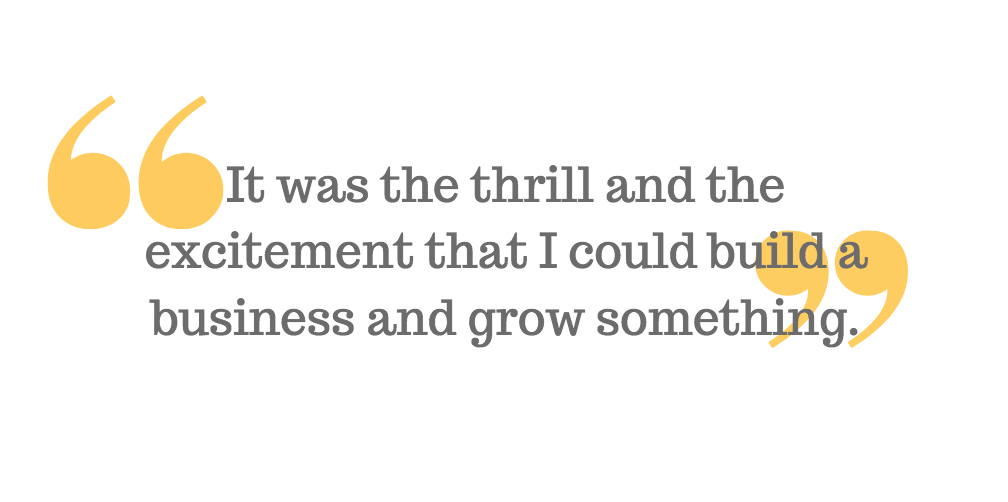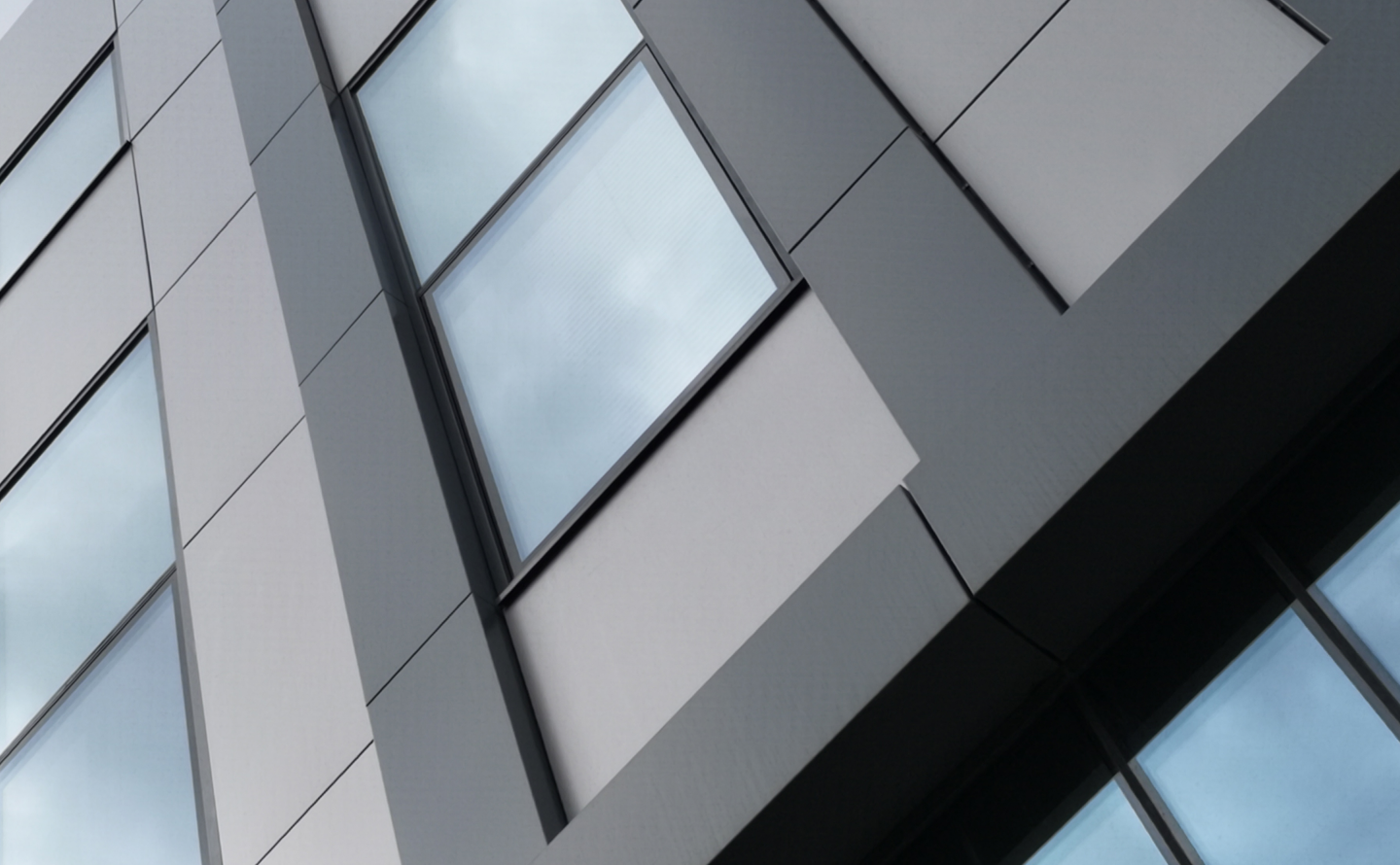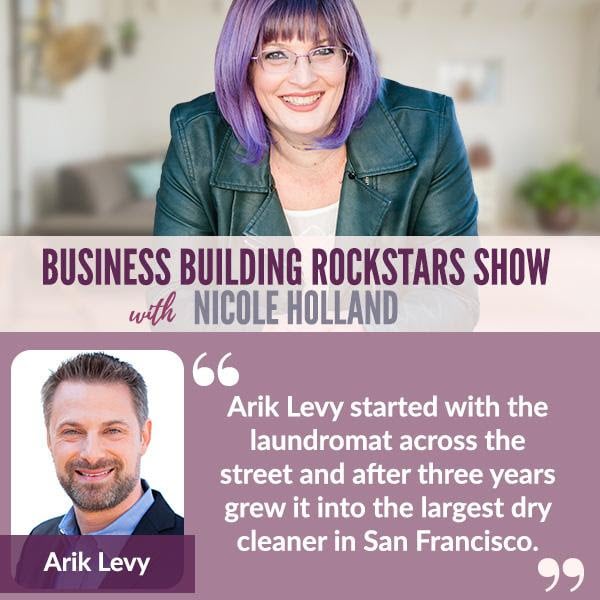In 2005 when Arik Levy founded our sister company, Laundry Locker, he had just one employee: himself. Thirteen years and over one hundred team members later, Arik has founded three successful companies, including Luxer One.
On this episode of the Business Building Rockstars Show, Nicole Holland interviews Arik on his entrepreneurial journey and the vision, sacrifices, and determination it took to build Luxer One.
Read the interview transcript below, or listen to the original 30-minute podcast here or on YouTube.
Arik Levy on Smart Package Delivery, Making the Market Safe and Automated
BBR: On this episode, I’m joined by Arik Levy. Welcome, Arik.
Levy: I appreciate your time and excited to be here.
BBR: For those folks who don’t know what a Laundry Locker is or delivery locker—we all know what the word “locker” means, but for folks who maybe haven’t experienced these before, can you start off telling our listeners what is this locker we’re talking about?
Levy: You talked about two different products that we have and two different businesses that I’ve started. The first one I started is a company called Laundry Locker. I started that back in 2005, almost thirteen years ago, where we put lockers in buildings for dry cleaning and wash & fold. It’s a gym locker type looking thing where you would hang your clothes in there and put your dirty clothes in. We come around and we’d pick them up. We service them, put them back in the locker, and you pick it up at your convenience.
The whole concept of the locker started back then with me. It was a very simple way for you to drop stuff off whenever you want and the dry cleaner to be able to pick it up at their convenience, and drop it off again. It’s a very seamless transaction where it’s unattended by both parties, but very secure on both of your schedules.

About four years ago, we parlayed that into the package world. You can imagine these Laundry Lockers—one of the major places that we’re placing them was into apartment buildings, so large apartment buildings where people live, and they need to get their dry cleaning done. That’s how we started the business. Luxer One, which is our package lockers, are similar lockers. They’re much more advanced and a much more technologically sophisticated platform, but in essence they allow the same thing. They allow somebody to drop stuff off, so usually that’s a carrier like FedEx or UPS or an Amazon driver coming to a building, dropping off the package in our locker.
It’s secure, it’s accountable, and then the recipient receives a notification that says, “Your package is ready.” They go down to the lockers at their convenience. They scan their access code at the lockers, it pops open, they pick up their package, and they’re on their way.
BBR: How was it that you discovered that there was this package management problem that you wanted to solve?
Levy: The opportunity came to us from the properties that had our Laundry Lockers. Not only that, we also sell these laundry lockers through a lot of different partners all over the globe. We’ve got about 75 different companies that are doing something very similar to Laundry Locker through our software platform called Drop Locker. They came to us as well as the apartment building saying, “We used to get four or five packages a day. Now, we’re getting 50 or 100 packages a day. This is a full-time job. We need a solution.” That’s how we decided to build Luxer One to solve their problem.
BBR: Going back to the Laundry Locker, back to the beginning when you first decided to start this, why did you care? Why did you think, this is a problem that I’m seeing and I’m the guy that’s going to solve it?
Levy: You’re talking about the entrepreneurial journey a little bit there, but for me there were two factors in deciding to build my own company. One was that I’d always tell myself, “If I ever come up with a good idea, I want to give it a shot. I want to prove that I can do this.” For me, that was a lot of the reason behind it. It was the thrill and the excitement and improving myself that I could build a business and grow something.
The concept came to me because I was living in San Francisco and I was driving about an hour and a half to work every day. I’d leave my house at 6:00 AM and I’ll get home around 7:00 PM.

Even though there was a dry cleaner in my building, I could never get my dry cleaning done. Everybody I know had piles of clothes and piles of dry cleaning. It was just like, “The dry cleaners always closed. This stinks.”
I tried some delivery services because those have been around for years, and that was not convenient either. I said, “I wish I could put it somewhere secure. They can come pick it up, clean it, put it back, and I’ll pick it up when I get home at 8:00 PM.” That was the impetus for Laundry Locker. I said, “That’s a great idea. Let me give it a try.”
BBR: How’d you get started? Did you go down to your dry cleaner downstairs and propose that? How did you wind up starting it?
Levy: It’s been a while now, but there’s a couple of pieces to it. First was the lockers and the software. That was probably where most of the work was around: “Let me go see if I can build these custom lockers and source them and how they’re going to work with the lock. Let me build the software and the technology to do that.”
Fortunately, I’d worked in a consumer products company and my background is on the software development side. I was able to do a lot of that myself or work with some team members that were able to do that for me, and so we built the product. The hardest part was getting the landlords willing to put these into the buildings and willing to let you market it to their customers. I knew in the beginning, we’d have three or four loads of laundry and I’d figure that piece out.
We got the lockers into the buildings and I started marketing them. Every morning, I would drive around and check my lockers to see if I had an order. I felt like a fisherman. You go check your lockers, you pick up a couple of orders, and you run over to the dry cleaner across the street and say, “Could I get a same day service on this?” I bring four or five loads a day and pretty quickly, I’m like, “How do I get some better commercial rates?”
I started with the laundromat across the street and then started going direct to a wholesaler. Within about three years, we became the largest dry cleaner in San Francisco. We built our own facility and do all our own processing now.
BBR: You, at the beginning, were doing the delivery. You were doing the driving. You were doing all of it.
Levy: I was doing everything. That was a fun couple of months.
BBR: You said within three years you became the largest. What did it look like at the beginning? Once you had the concept, you built the technology, you had some lockers, you’re in the mode of driving and picking up packages. When you were starting out, were there ever any roadblocks that you hit that made you question, “Should I even keep going?” If so, what were those reasons that you did keep going and didn’t give up?
Levy: I don’t know if I’d call it a roadblock, but it was definitely one of those times. A month or two after I started the business, my dad had come out to visit me from the East Coast and said, “Show me what you built here. This is great. We’re going to go around and pick up some laundry.” We jumped in my car and we went.
At that time, I probably had about ten locations. I would start the route in the morning at 7:00 AM and we’d go to the ten locations to pick up any laundry that we had. We went out and probably picked up four bags of laundry. My dad’s an accountant so he starts doing the math and goes, “I appreciate what you’re doing here, but this is going to be tough to make money.” I said, “We’re getting traction. People are starting to use the service. We’ve got people. There’s something here. There’s a vision here.”
He was very supportive but it was definitely one of those times where a third party saw actively what you’re doing and said, “Is this going to work?” There was plenty of naysayers in the early days. There was a lot of people equally who are super excited about it and felt the pain and why this is a great idea. Other people just go, “That’s not a great idea.”
A lot of it has to do with your frame of mind and what you’re used to. If you live in an apartment building and you work long hours and you can’t get your dry cleaning done, you’re like, “This is a great idea.” If you live at home and you’ve got a washer and dryer and you don’t wear dry cleaning clothes, you’re like, “Who’s going to use this?” It definitely resonated at that time in San Francisco. It was all about being at the right place at the right time.
BBR: It’s been a long time now. Thirteen years is a long time. That’s great that dad was like, “This isn’t making financial sense.” Did you have a job at that time or were you just doing this because you were going morning until night?
Levy: I was just doing this. It was pretty easy. Stepping back, I ran operations for this consumer products company. I had a pretty important role at the time. I came up with this idea and spoke to the CEO and said, “I want to go build my own company. It’s going to take me a while to do this, like six months.” And she was incredibly supportive and said, “That’s a great idea. Why don’t you do that. As long as it doesn’t affect your job, I’m fine with that.” She was an entrepreneur as well so she gave me a six-month runway to build out the concept and get the company and all the fundamentals in place.
It wasn’t until I left that company that I started Laundry Locker. When I left that company is when I first started placing my first lockers and going out there and starting to market it and put my boots on the ground. At that point in time, I didn’t have a job. The little I had saved was what I was living on. It definitely changes your financial position very quickly.
BBR: Definitely sacrifices have to be made then at that point in lifestyle for the bigger vision. That’s amazing that you approached her. She was super supportive. I imagine that for her, that was useful information as well so she could start looking to replace you rather than having to fill the position quickly. That transition for the both of you, I imagine, was a nice thing.
Levy: It worked out well. I’m still reflecting on people that worked for me now. If someone came to me and said, “This is what I plan on doing,” I’d be very supportive of it and say, “As long as it doesn’t affect your job here, how can I help you? I appreciate you giving me the time.” I had a pretty big role there and allowing someone to fill that role and transition it over and such. It worked out well.
BBR: That’s something that I like to mention to the audience and some of my clients when we work together. When people are looking to leave corporate and their comfortable and secure job and they have this vision of entrepreneurship, sometimes they get in their head that it’s an either/or. They have to keep it secret and do it on the side and then put in their two weeks or four weeks and then that’s it. They don’t necessarily think, “My company might be okay with this.” Maybe it’s worth having that conversation. Maybe looking at the job itself as a way to fund their initial startup.
Levy: You need to be careful too. It’s helpful to have that buy-in. Fortunately, we weren’t competing with their company in any way, shape, or form, even if you’re using their computers. I have my own laptop to do this stuff on. You just got to be careful to make sure that you’re not using any of their resources to help you build your business because they could come after you, especially if you don’t have a great relationship with them.
BBR: I’d say if it’s not a great relationship, you probably wouldn’t want to have that conversation. That’s something I see a lot. People who get to learn about entrepreneurship and they have this desire to be entrepreneurs sometimes get caught up in the idea that having a job is bad, having a job is stopping you from your dreams.
If you love your job, if you like what you’re doing, if you have a good rapport there, then it’s not. It’s actually funding the business oftentimes in the beginning so that you can have that transition. It sounds like everything was pretty easy. You didn’t have many barriers to entry. It was an idea and concept, you had the resources, you had the knowledge, and you just went for it. Were there any mindset hurdles or anything that came up that would be of value to my audience, how you overcame?
Levy: There’s always a lot of struggles that you face on a day-to-day basis when you’re running your own company. The scariest one is always money. I didn’t have a lot of money and started with the little I’d saved in the six months that I decided I was going to do this. At least I try to not think about the bad times and focus on the goods and the positives and where we are today. There’s always people telling you no.
I would sit there on Craigslist calling apartment buildings and ads on apartment buildings to try and get my locker into buildings. Some would say no and customers would write bad reviews about you. That’s the worst as a business owner. I’ll never write a one-star review on anyone because of the impact. I don’t think people realize, when they don’t own their own business, what a one-star review means to the person who put their heart and soul into everything that’s going on there.
There’s definitely plenty of adversity and plenty of challenges and competition that’s coming into our space and issues here and there. For the most part, it’s a lot of putting your head down and grinding it out and being willing to do everything. I started by doing those deliveries and pickups myself. I pressed clothes and washed laundry and did anything it took to get that stuff done. When you have one or two employees and one of them calls in sick or quits on you, you’re doing the job and also trying to hire somebody. That’s part of what happens.
Every entrepreneur that I talked to struggles with those things. The bigger you get, the more insulated you’re able to get from those things and protect yourself and get redundancy and such. It’s not easy in any business. Any business you look at from the outside and you go, “That’s easy, I could do that.” Then you peel back the layers and you go, “There’s a lot more to it than I thought.”
BBR: I don’t know if it’s the same, but for me, you never know what you don’t know. I can hear things all day long, but until I have an experience, I don’t understand them. On one hand I could say, “I could prepare for this,” but I can’t. I’ve yet to be able to prepare for something. The awareness is good, but when I go through something, I’m like, “That’s what they were talking about.” With each stage of my business, as I grow, I am getting better and better about learning how to navigate those pivot points and those situations.
For example, I was talking with one of my mentors and we were talking about the difference in going from teaching people how to do something to teaching people how to think about something. That’s something that a lot of entrepreneurs and I know. At least go through those little pivots where you can be told and taught how to think something. Until you get to a certain point, you’re like, “Now this makes sense. Now I understand about who I’m surrounding myself with and who I can lean on. I understand what happens when somebody leaves. I understand why maybe I wasn’t the best leader for these employees.” Do you know what I mean?
Levy: At this point in time, I’ve been doing this for a long time. It’s about thirteen years. This is my third business. We’re all spin offs of the same concept. It’s the third time I’ve built something from nothing into a substantial business, which is what we’re doing over here at Luxer One.
I never quite understood the difference between an experienced entrepreneur and a first-time entrepreneur. It’s amazing how many mistakes you make your first time and how well you’re able to learn from those, and how much better you are down the road. I am in a group called EO and on a monthly basis I meet with a handful of about ten other entrepreneurs. We sit there all day and talk about the challenges that we struggle with and how are we doing.

A lot of it is around sharing your experiences, like someone says, “I need to fire a senior person in my company.” If you don’t have a support group like that, if you don’t have somebody that you can talk to, and for us, if someone shares that, we’ll be like, “Let me tell you about a story when I fired my head of sales,” or something like that.
It’s about having those at-bats, that repetition. A lot of it comes with time and a lot of it comes with the network that you surround yourself with and the people that you talk to and how you’re able to get that guidance and that coaching to help you become a better CEO, a better leader, and a better entrepreneur.
BBR: Are there any tips that you can give specifically to our audience regardless of what stage they’re at in their business, whether they’re just starting out or whether they’re much further along? I don’t know if it’s how to recognize or when to recognize it’s time to make some changes. Have you gone through any stages that you can think of that are like, “It’s time to make some changes.” When you recognize that, how do you make those changes? How do you move forward?
Levy: The time when you realize you need to make some changes is when you start running out of money. Usually, money is always the easiest determining factor. The hope is that you can get ahead of that.
Today, it is the driver in business. It’s the fuel that keeps us going. If your money’s going up, you’re probably doing the right thing. But, you need to be looking forward and saying, “Is this going to be the right thing long-term? Where’s the market going? Am I going to tap out here? What other markets do I need to open up? How fast do I want to keep that money going up?” If it’s going down, you’re probably doing something wrong or there’s some influences that are steering things in the wrong direction. How do you correct for those? How do you find some other market opportunities? How do you change your pricing? How do you do the different things that help you control that? That’s the easiest way.
Another great way is customer feedback. Customer feedback is priceless. It’s hard to swallow those bad reviews or somebody says something negative to you and tells you why your product stinks or how you ruined their life. Hopefully, you can take those and learn from them and say, “What did this person say that is true and does resonate, and why did they experience that? How can I improve what I’m building?” Any advice or any feedback people give you, you got to take it with a grain of salt sometimes, but you also hopefully can listen to it and see what’s behind that. It can help you become better.

BBR: You’ve got this great, strong foothold. Tell me more about where Luxer One’s at now.
Levy: Luxer One started with lockers and apartment buildings. We have over 1,300 buildings that have lockers. Over a million packages a month are delivered through them. Like I was saying—what are the next market opportunities? We’re heading in the right direction. How do we make sure we capitalize on this and leverage what we have? We’ve started to get pretty aggressively into retail space. We’re working with several of the largest retailers in the country.
We’re putting lockers into their locations for buy online, pick up in-store (BOPIS). We’re doing some great stuff with office buildings. We’re involved in universities and mail centers, and a lot of different areas where we’re starting to apply the Luxer One technology to solving this challenge of how do I conveniently place something in a locker and how can people conveniently pick it up on their timeline. It’s working out well. There’s a ton of different markets that we can solve with this.
BBR: You’re not in San Francisco anymore?
Levy: I relocated out of San Francisco about three years ago and started this business up in Sacramento. It’s about an hour and a half outside of San Francisco which is where I’m headquartered, but we have our lockers all over the country in every major market.
BBR: I’m not an expert in your field, but in a bit of research that I did, I feel like you were very innovative, and you were ahead of the curve. It seems like now, there’s a lot of other people wanting to get a piece of that pie, which is something that a lot of entrepreneurs and small business owners who are innovative face. How do you stand out and how are you positioning yourself as different from your competition?
Levy: Innovation and technology can only get you so far. We definitely consider ourselves a technology company. We are always innovating. We’re always thinking about what’s the next product, what’s the product that’s two, three, five years down the road. What we’re working on today is stuff that we plan on launching two or three years from now. There’s a lot of that.
A lot of it is also how do you look at your competitors as potential opportunities as opposed to threats. How do you partner with them? How do you sell through them? How do you pivot your business if someone’s doing better than you are? Maybe there’s a way that you can partner with them. There’s things that you’re doing better than they are, so you license technology. That’s what we did at Laundry Locker.
We had a lot of people who want to get into a locker business and started coming at us. We said, “Why don’t we sell our software to these guys?” We can become a software business instead of trying to do the laundry ourselves. It’s been really successful for us. It’s why you see a locker type laundry solution in 50 markets throughout the world. You have to be willing to change. You have to be willing to adapt. You have to be willing to pivot.
Look at your competition as opposed to hating them and trying to fight them, what can you look at that they’re doing well? What are they not doing well? How can you partner with them? One of my sales guys is incredible. He’ll walk up to any competitor at a trade show and be like, “How you doing? Nice to meet you. Talk to me about what you’re doing,” and we’re friends with them now. How do you change that dynamic?
We’re all trying to solve the same problem and have different ways of going after the same thing, but you don’t have to consider them your enemy. The best thing you can do is reach out to your friends or your enemies or your competition. Get to know them because where you are today, I can guarantee, your market’s going to be different two or three years from now. You’re going to cross paths with those people left and right. If they don’t like you, it’s not going to get you anywhere.
BBR: Thank you so much. Where can my audience go to continue the conversation with you?
Levy: Thank you, Nicole. You can hit us up on Facebook or Twitter. LuxerOne.com is our website.
BBR: Thank you and have a great day.
AL: Thank you. Take care.
Luxer One provides smart locker solutions for multifamily, retail, office, mail center, and university. Want to learn how we can help you manage your package problems? Reach out to a member of our team.






